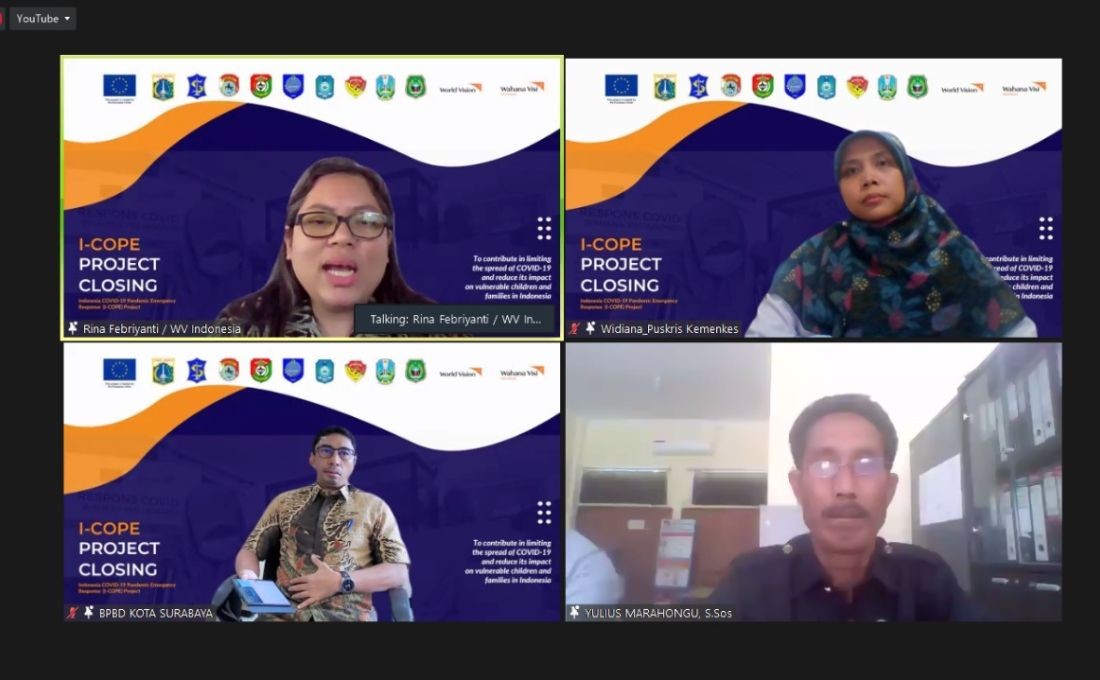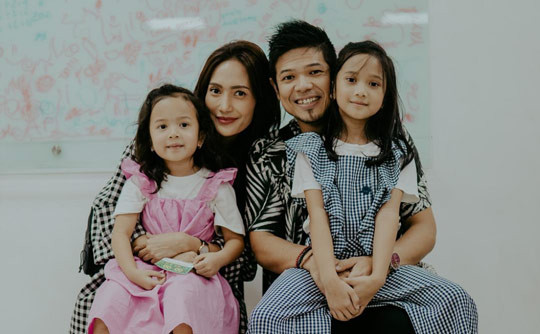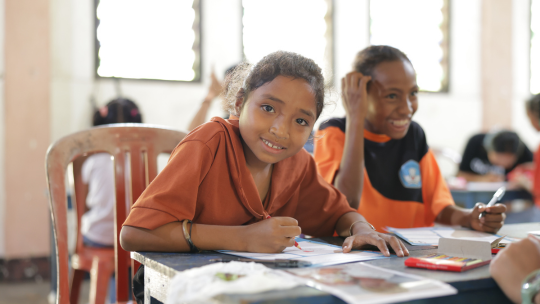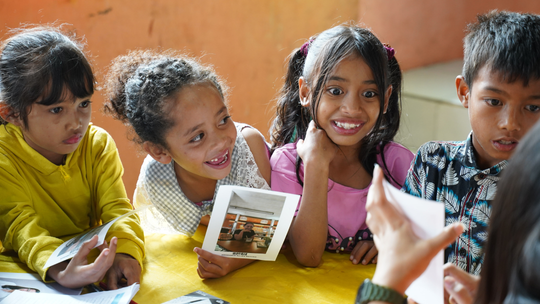EU and World Vision's COVID-19 response programme enhance resilience and livelihoods of vulnerable communities in Indonesia

The European Union (EU), World Vision Netherlands, and Wahana Visi Indonesia held a closing ceremony of their two-year project “Indonesia COVID-19 Pandemic Emergency Responses (I-COPE)”. The project has contributed to limiting the spread of COVID-19 and reducing its impact on vulnerable children and families in Indonesia. The project is implemented in 90 villages in six districts/municipalities in Indonesia, namely DKI Jakarta, Surabaya in East Java Province, Southwest Sumba, and East Sumba in East Nusa Tenggara Province, and Ternate and North Halmahera in North Maluku Province.
The event was held virtually and attended by the Mayor of Ternate, Regent of East Sumba, Regent of North Halmahera, Regional Disaster Management Agency of Surabaya, and representatives from the District/City Health Office, District/City Agriculture Office, District/City MSME Office, Regional Disaster Management Agency in District/City level, the COVID-19 Task Forces, Civil Society Organisations, academics, and media. The Head of Cooperation at the EU Delegation to Indonesia represented the EU.
The I-COPE project has delivered the following results:
- Around 25,000 people were reached through awareness campaigns on COVID-19 preventive measures;
- 3,067 households received hygiene kits that contain essential sanitary materials such as hand & body soap, hand sanitizer, and disinfectant;
- 81 handwashing facilities with soap and water were established and maintained to provide basic hygiene services. Each facility has a water committee for facilities management and maintenance;
- 6 CSOs received training to enhance their capacity in financial management, hygiene and sanitation, COVID-19 Risk Communication, mental health and psychosocial support, and combating misinformation and social stigma;
- Accessible Information, Education, and Communications (IEC) materials related to COVID-19 preventive measures were published in the form of billboards, posters, roll banners, radio talk shows, and mobile loudspeakers;
- 33 health care facilities received Personal Protective Equipment (PPE) in the form of surgical masks (4,057 boxes), hazmat suits (18,778 pairs), and disinfectant (9,056 liters);
- 561 health workers were trained on the use, maintenance, and safe disposal of PPE;
- 4,758 households, including people with disabilities, were enabled to meet their basic needs like food through cash transfers or vouchers;
- 5,721 households were trained in household financial preparedness and business continuity plan;
- 1,050 farmers received farm inputs and were trained on good agricultural practices;
- 750 micro-business owners received business capital to effectively restart their business and were trained to strengthen business performance and competitiveness and improve market access;
- 500 micro-business owners received access to social protection through micro-business insurance provision;
- 89 local saving groups were established or reactivated and trained with household economic management skills;
- 60 villages developed COVID-19 Preparedness Plan; and
- Support the communities hardest hit by the tropical Cyclone Seroja in East Sumba through distribution of masks to 2,004 households and hygiene kits to 332 households, provision of vouchers for food and house renovation materials to 327 households, installation of 6 handwashing facilities, as well as distribution of PPE to 3 hospitals in the form of surgical masks (966 boxes), hazmat suits (4,154 pairs), and disinfectant (408 liters).
On the occasion, the Regent of East Sumba, Drs Khristofel Praing, M.Si expressed his appreciation for the project and the EU financial support. “Thank you for the assistance provided by EU and WVI during the COVID-19 pandemic. The personal protective equipment provided was very helpful for the health workers. The assistance helped us through the pandemic and during the Seroja disaster.”
Similarly, the Regent of North Halmahera, Ir. Frans Manery stated, “During the pandemic, the I-COPE project funded by the EU really helped us in North Halmahera in mitigating and responding to the COVID-19 cases. The distribution of personal protective equipment and the capacity building of our health workers established a safe and sustainable working environment amidst the pandemic and in the post-pandemic period.”
“The I-COPE project is part of a €200 million (IDR 3.5 trillion) 'Team Europe' package to assist Indonesia in dealing with the COVID-19 pandemic and its economic and social impacts,” said EU Ambassador Vincent Piket.
“This project has reinforced healthcare systems, mitigate the socio-economic impact of COVID-19, and support the recovery. This directly benefited 1.1 million people including 12,000 vulnerable groups in DKI Jakarta, Surabaya, Southwest Sumba, East Sumba, Ternate, and North Halmahera. The project also provided critical support to the emerging needs of vulnerable households affected by Tropical Cyclone Seroja that hit East Sumba in April 2021, including the distribution of personal protective equipment to health workers and masks to 2,000 households in anticipation of an increase in the number of COVID-19 cases,” he added.
"We are very grateful and appreciate the cooperation that the European Union has carried out since 2020. We hope that all the efforts made can help the recovery of vulnerable communities, especially children and families affected by the COVID-19 pandemic. All training carried out can contribute to improving the quality of local human resources, especially in every effort to prevent transmission and handle pandemics in their respective regions. This will help create a better environment for children to grow and develop optimally,” said Angelina Theodora, National Director of WVI.
The International Programmes and Grants Director of World Vision Netherlands, Marijke Zimba, stated, “The COVID-19 pandemic has presented an unprecedented challenge to our public health systems and economic stability. Through the support of and cooperation with the European Union, the I-COPE project was able to contribute to limiting the spread of the virus and strengthening the healthcare systems in Indonesia. The focus on the short-term mitigation measures as well as the long-term focus on health care and assisting affected communities has enabled an environment where people can cope effectively with the socio-economic impact of COVID-19.”
Written by: Arya Dwiputra, Media Relation Executive Wahana Visi Indonesia



